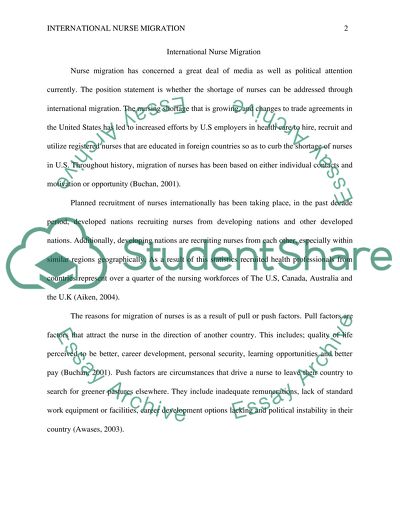Cite this document
(“International Nurse Migration Essay Example | Topics and Well Written Essays - 1750 words”, n.d.)
International Nurse Migration Essay Example | Topics and Well Written Essays - 1750 words. Retrieved from https://studentshare.org/nursing/1439731-position-paper
International Nurse Migration Essay Example | Topics and Well Written Essays - 1750 words. Retrieved from https://studentshare.org/nursing/1439731-position-paper
(International Nurse Migration Essay Example | Topics and Well Written Essays - 1750 Words)
International Nurse Migration Essay Example | Topics and Well Written Essays - 1750 Words. https://studentshare.org/nursing/1439731-position-paper.
International Nurse Migration Essay Example | Topics and Well Written Essays - 1750 Words. https://studentshare.org/nursing/1439731-position-paper.
“International Nurse Migration Essay Example | Topics and Well Written Essays - 1750 Words”, n.d. https://studentshare.org/nursing/1439731-position-paper.


